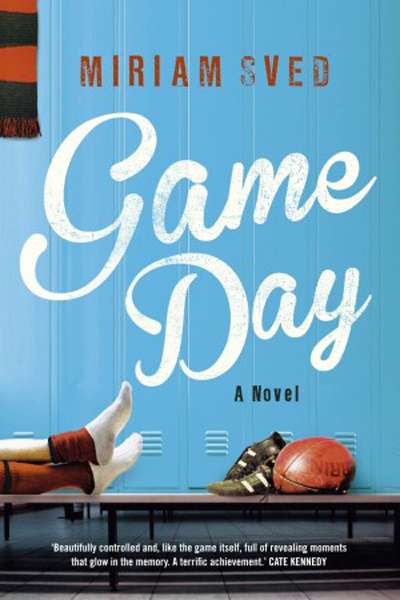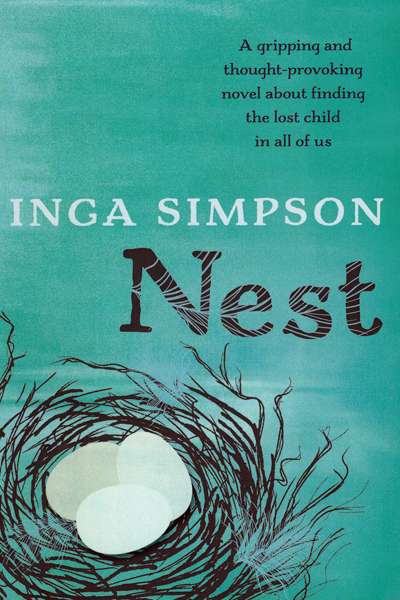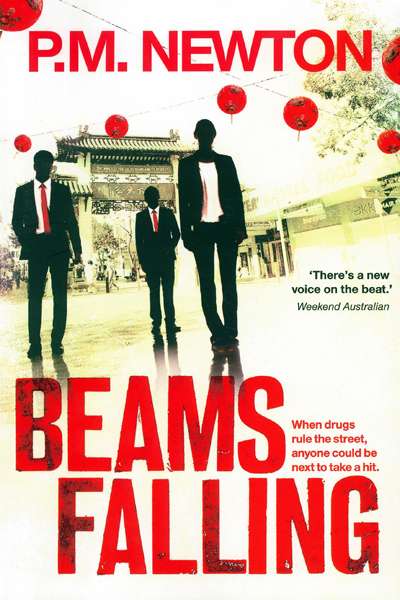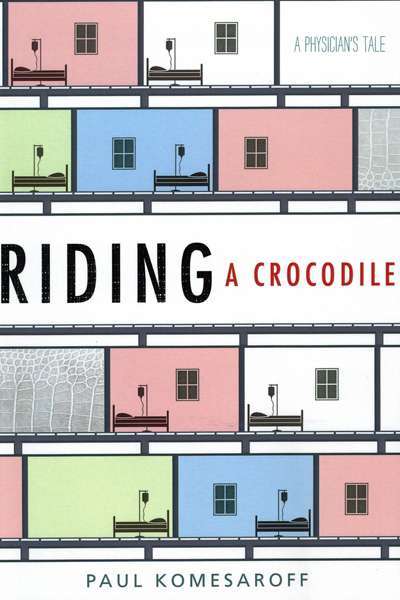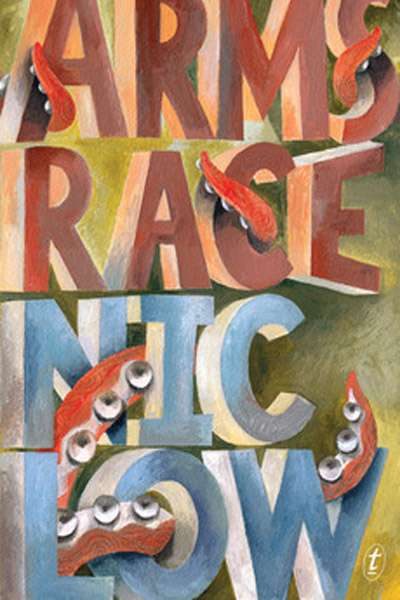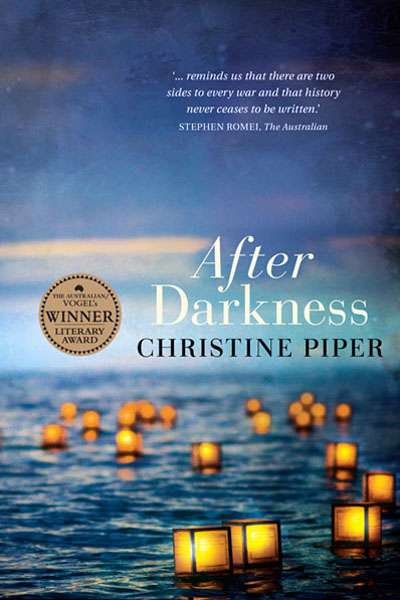Fiction
Colorless Tsukuru Tazaki and His Years of Pilgrimage by Haruki Murakami
A recent exhibition at Sydney’s Museum of Contemporary Art included two videos of scenes from modern Japanese life that at first seemed ordinary, even banal. In one, the artist Tabaimo (Ayako Tabata) animates the interior of a train, with views of passing suburbs; in the other, she shows a mansion from a bygone century, opening like a doll’s house to display its plush furnishings. But then things begin to change. Human body parts appear on the train’s luggage racks, an egg on the floor explodes, and the view of the next carriage morphs into a caged prison. Squid-like tentacles penetrate the house, a door opens to reveal a pulsating brain, and a torrent of water pours out. The climax of the train video shows a man lying on the track becoming a red sun on a white screen; the doll’s house one ends with the flood subsiding, and the two halves of the building closing up. The restored street frontage is bland, but no less puzzling.
... (read more)Miriam Sved’s début novel is a structurally innovative portrait of élite Australian football as a juggernaut that leaves lives scrambling and spent in its wake. Its fourteen stories, each told from a different narrative perspective, form a prismatic study of a single season in the lives of Mick Reece and Jake Dooley, two first-year recruits at an unnamed, present-day AFL club. The novel’s true focus, however, is the internal worlds of those around them – parents, older teammates, club staff, self-identified WAGs, supporters, journalists – caught up in the trick of fame which has ensnared these young men.
... (read more)Inga Simpson’s second novel is set in the lush subtropical hinterland of Australia’s east coast. Jen, a reclusive artist, goes back to where she grew up and where her father was a timber-cutter, to find peace among the birds and trees. But mysteries and disappearances trouble her idyllic life.
Like her artist protagonist, Simpson has acute powers of observation and an ability to capture nature on the page. The vivid colours of rainforest birds and the intricate growth of forests, set to a soundtrack of birdsong, lulls the reader. However, the nesting theme threads together a narrative more fragile than compelling.
... (read more)Beams Falling is a good example of its kind: a sweaty, grimy Sydney-based noir. I wish that were higher praise, but there is an endless procession of local crime fiction out there – much of which seems to emanate from Sydney – and the competition has not set the bar overly high.
... (read more)Riding a Crocodile: A physician’s tale by Paul Komesaroff
There is a long tradition of physicians turned writers, including Chekhov, Keats, Conan Doyle, and Somerset Maugham. More recent doctor–novelists include Alexander McCall Smith, Michael Crichton, and Khaled Hosseini. In Australia, Peter Goldsworthy is probably our most prominent writer–physician, with John Murray and now Paul Komesaroff joining the tradition.
Medicine provides plenty of material for the novelist. As Peter Goldsworthy said in an interview in the Medical Journal of Australia: ‘You can’t write a novel unless you have constant human contact – talking to people, listening to what they say, and studying their character – medicine’s perfect for that.’ A medical practitioner sees diverse people, often in crisis. They watch relationships change, and fail to change. They witness messy storylines being played out in front of them. They confront birth and death, disease and desire.
... (read more)Characters on the verge of a breakthrough populate this impressive début short story collection. An aspiring artist in ‘Making It’ is unsure whether a tilt at greatness is worth the personal sacrifice. In ‘Scar’, a middle-aged geologist feels conflicted by prospective fatherhood and observes, ‘Against that slow patience of stone the need to reproduce had always seemed like vanity.’ Low’s stories cover an ambitious range of locations from Melbourne to Mongolia; his prose is energetic and inspired.
... (read more)Australia’s history is chequered at best. For every story of military heroism, there is one of discomfiting prejudice. So it is with Christine Piper’s After Darkness, which explores Australian history from the point of view of a Japanese doctor, Tomakazu Ibaraki, arrested as a national threat while in Broome, and sent to the Loveday internment camps in regional South Australia.
... (read more)Peter Docker knits us into a ‘pea-soup fog’ of Western Australian heat, blanketing us, until we feel it ‘seeping right into the bones’. In the familiar-sounding Baalboorlie, the sun beats down,scorching the airless metal cell of a prisoner transportation vehicle. It cooks the Old Man’s flesh as he is escorted across a vast stretch of his desert country. The floor of the mobile oven sears his bare stomach, the branding ‘raised up and angry red and orange, in the shape of the rising sun badge of the ADF’. His grandmother was right, ‘White men will steal you in the night, then cook and eat you’.
... (read more)He was a man with a pinboard, and that boosted him a hundred points in her nervy evaluation, the first night she saw his room. On the pinboard were tickets, a laminated backstage pass, a wrapper from a Swiss chocolate, all those things that could wait for drowsy burbling nocturnal stories in the dark, the recounting of Times Before Her recited off like threaded bead ...
Inherit your great-grandmother’s wild red hair and hear the boys sing Griffin’s Gingernuts are so spicy when you walk past the Four Square court. Feel like a freak. Ask your mother if you can cut your hair short when you start high school and hear her say but it’s your best asset. Worry about your assets. Regret not cutting it on the first day of school when your form teacher christens you Orphan Annie and everyone laughs. Eat your vegemite sandwiches alone at one end of a wobbly bench outside the gym and ignore the fat girl wobbling it at the other end. Howl into the headwind as you bike home from school. Hate your mother when you arrive red-eyed, wind-whipped and she sighs. Wish you were Orphan Annie.
... (read more)


